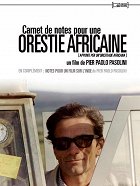Directed by:
Pier Paolo PasoliniScreenplay:
Pier Paolo PasoliniComposer:
Gato BarbieriPlots(1)
A free-form essay film by the great Pier Paolo Pasolini, which is a self-critical gesture toward a film based on the Oresteiaand set in Africa, but which was never made. Perhaps here more than anywhere else Pasolini exposes his politics and also the radical avant-garde nature of his film practice. (Locarno Festival)
Reviews (1)
Pasolini is a communist without progressive faith in economic modernization, nostalgically looking backward rather than forward, seeking authenticity in human life unspoiled by the empty greed of capitalist civilization. Pasolini finds a non-utilitarian way of experiencing the world either in the past (his work inspired by antiquity, later the Trilogy of Life set in the Middle Ages), or in the (lumpen) proletariat of southern Italy (a recurring theme in his work, strictly speaking, however, also - through the irreversible disappearance of this way of life in post-industrial Italy - belonging to the order of history), or as here - in the combination of both. Africa as the intersection of history and the present: the present symbolizing modernization in the form of pervasive consumerism, sparing no developing countries, which are presented as the only possible future; history as the experience of a time when soulless rationality and the utility of market society had no place alongside liberating irrationality, the uselessness of actions imbued with freedom, and naïve yet eternal connections between people and beliefs, traditions, customs, and religions. Africa as a challenge to the third world, fighting against imperialism and thus against the consumerism of the first world, in order to create a better future through the synthesis of the past and the present.
()
Gallery (1)
Photo © Locarno Film Festival

